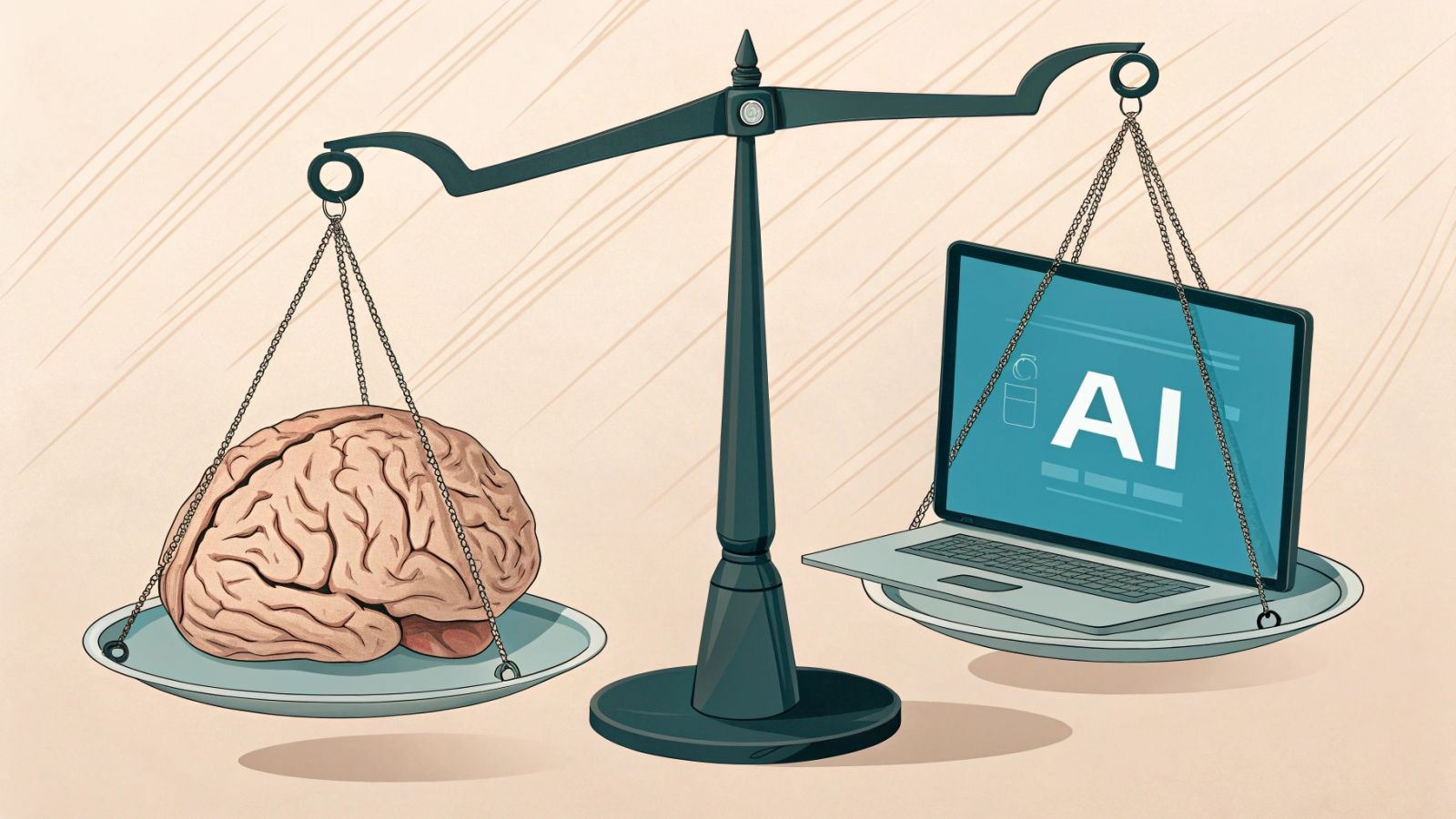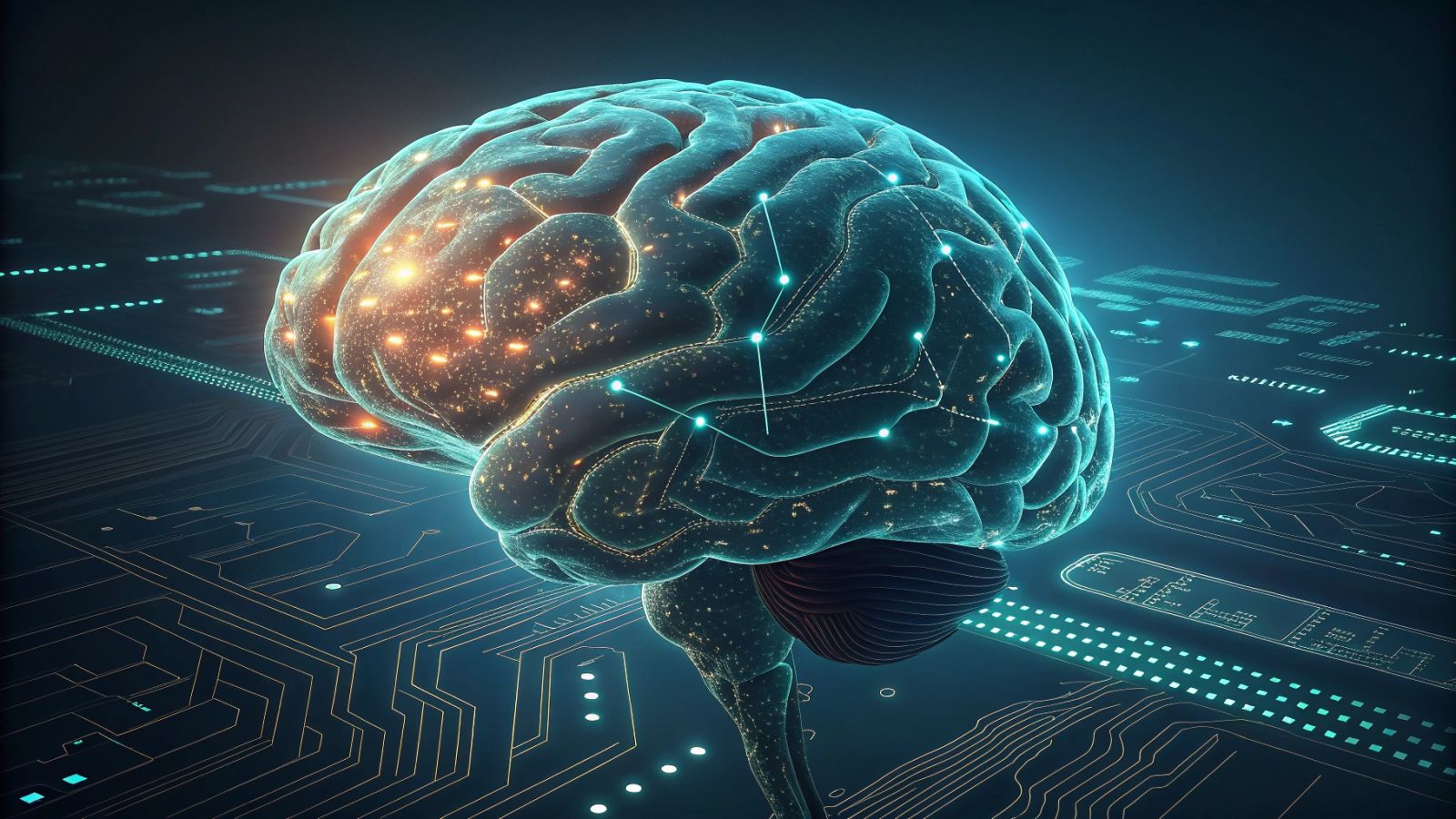Is artificial intelligence making us stupid? 🤔
Published by Cédric,
Article author: Cédric DEPOND
Source: Carnegie Mellon University and Microsoft Research
Other Languages: FR, DE, ES, PT
Article author: Cédric DEPOND
Source: Carnegie Mellon University and Microsoft Research
Other Languages: FR, DE, ES, PT
Follow us on Google News (click on ☆)

This study reveals that 62% of the professionals surveyed admit to using their critical thinking less when they use AI, especially for routine tasks. Conversely, those who have high confidence in their own expertise are 27% more likely to critically evaluate AI results. At the same time, the study highlights a shift in work approach: professionals spend less time directly solving problems and more time supervising AI, validating and adjusting its responses.
Thus, nearly 70% of respondents use AI to draft content that they then revise. AI, from being a passive assistant, becomes an active player in decision-making, which requires rigorous evaluation to avoid excessive dependency.
Critical thinking and AI: two opposing approaches
Critical thinking, in the context of AI, manifests as an active approach to fact-checking, analyzing potential biases, and using AI as a tool for reflection. It is an approach where the user does not passively accept AI results but examines and evaluates them.
In contrast, passive use of AI is characterized by the unquestioning acceptance of results, copying content without verification, and dependency for decision-making. In this case, the user delegates their critical thinking to AI, which can lead to a loss of skills and vulnerability to misinformation.
It is therefore essential to cultivate a critical approach to AI, using it as a tool to illuminate our own thinking rather than as a source of definitive answers. This involves developing our skills in fact-checking, bias analysis, and questioning received ideas.
The risk of "mechanized convergence"
The study warns against an insidious phenomenon: "mechanized convergence." Dependency on AI, by standardizing approaches, risks impoverishing the diversity of ideas and solutions. AI, by its very nature, tends to offer standardized responses, favoring generalization over uniqueness.

The homogenization of results is a direct consequence of this convergence. Individuals, faced with similar problems, risk converging towards identical solutions, dictated by AI, neglecting the richness of human intuition and creativity. This standardization can hinder innovation and the ability to think "outside the box."
Let us not forget that AI is based on content that is initially "original." But if we expand the content base with results exclusively generated by AI itself, we risk entering a vicious cycle where AI relies on overly homogeneous content.
"Mechanized convergence" engenders other risks, such as the decline in problem-solving skills, the increased risk of misinformation, and the reduction in diversity of thought. These threats require heightened vigilance and deep reflection on our relationship with AI.
AI: a double-edged tool
AI, while offering undeniable efficiency gains, is not without consequences for our critical thinking. If used passively, as a source of ready-made answers, it can lead to a decrease in cognitive engagement and excessive dependency. However, used actively, as a tool for reflection and exploration, it can stimulate curiosity, encourage questioning, and enrich our own reasoning.
It all depends on our approach. AI can become an intellectual crutch if we let it think for us, depriving us of the necessary exercise to develop our own critical thinking. Conversely, it can become a valuable ally if we use it to explore different perspectives, analyze complex information, and question our own ideas.
It is therefore essential to find a balance. AI should not replace our critical thinking but complement it. We must learn to use it as a tool to deepen our reflection, broaden our knowledge, and develop our critical thinking. It is under this condition that AI can truly become an asset for our intelligence.